
Патофизиология Эндокринной системы
.pdfИзменения в железах с возрастом
–Увеличение содержания соединительной ткани
–Снижение кровотока
–Decreased metabolism resulting in increased half-life of medications
–Changed:
•basal level
•response to stimuli
•Transport
•Target organ responsiveness
•catabolism
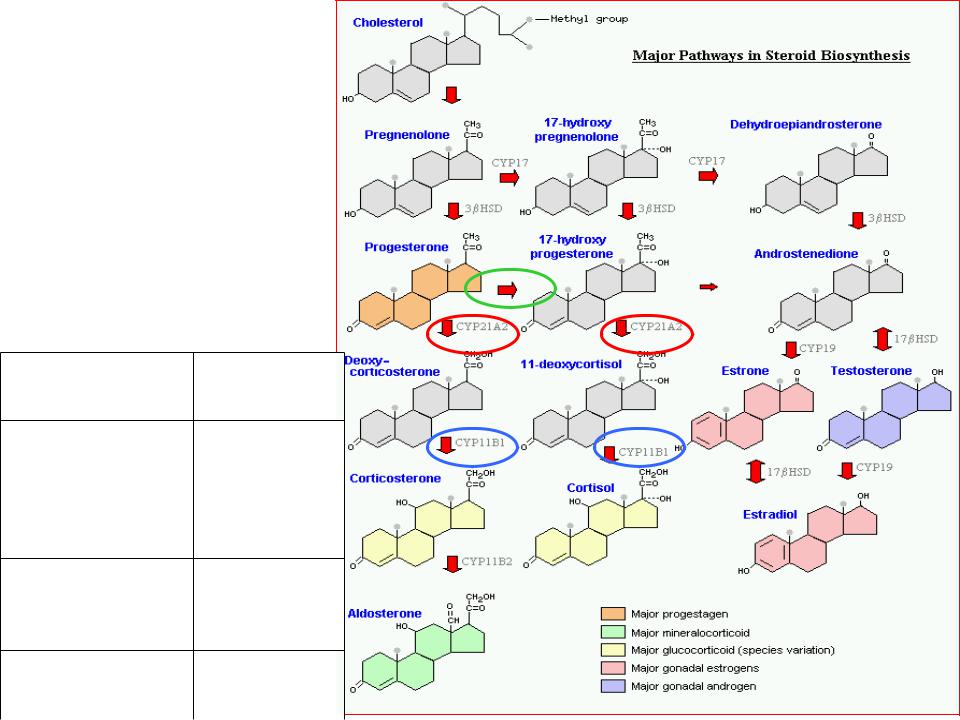
Нарушение
биосинтеза
гормонов
Генетический |
Прояв- |
|
дефект |
ления |
|
|
|
|
17- |
Гипогонадиз |
|
гидроксилаза |
||
м гипертезия |
||
|
21- |
Вирилизм, |
гидроксилаза |
потеря соли |
11- |
|
Вирилизм, |
|
гидроксилаза |
гипертензия |
|
|
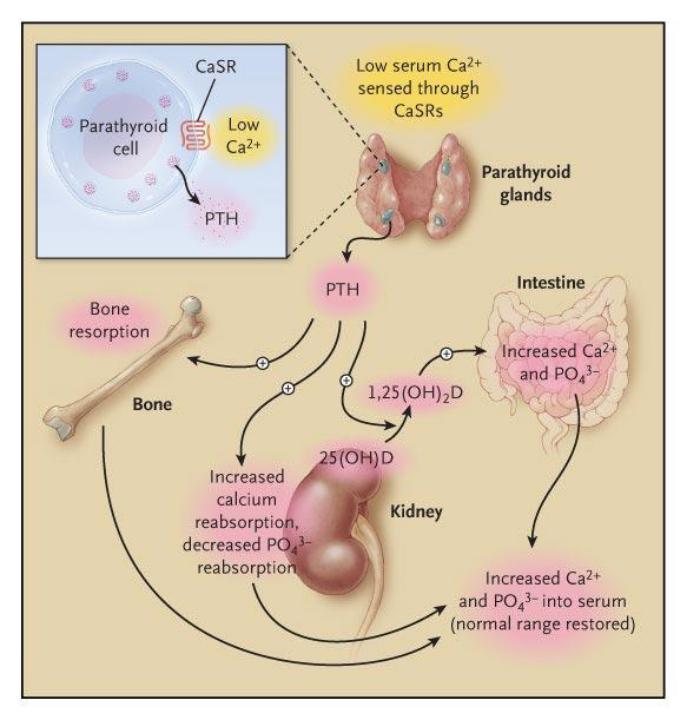

SynapseNeuronsFiring
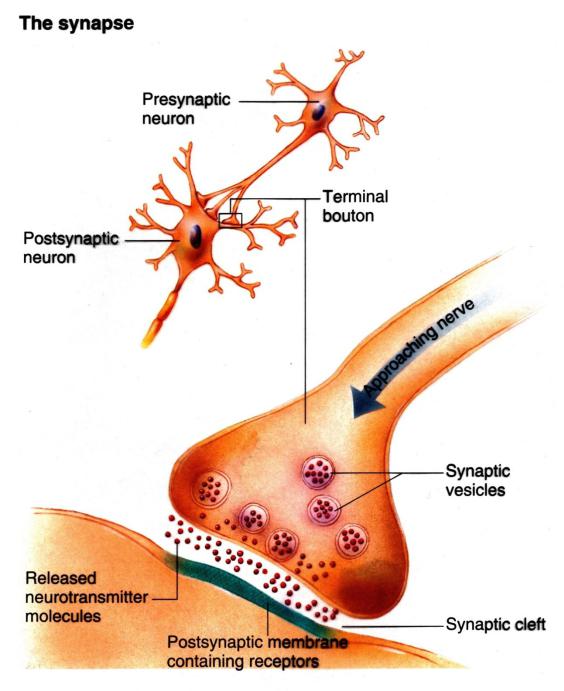
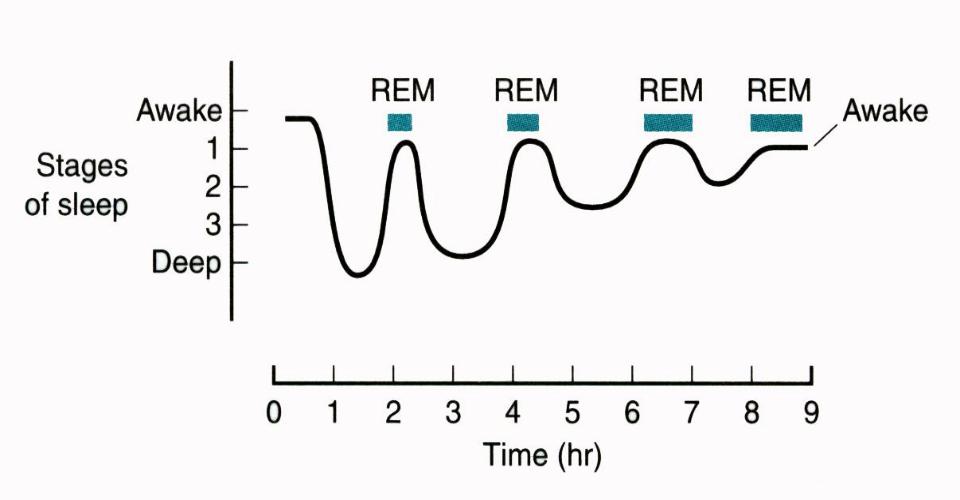
Стадии сна

Effects of Facial Expression
on Emotions
Individuals who adopt the physical postures associated with some emotions, e.g., smiling or frowning, report that they experience the same stimuli in different
ways, e.g., if forced to smile (clenching a pen in the teeth), people find comic strips funnier than if they are forced to remain closed-mouthed (holding a pen between the lips).
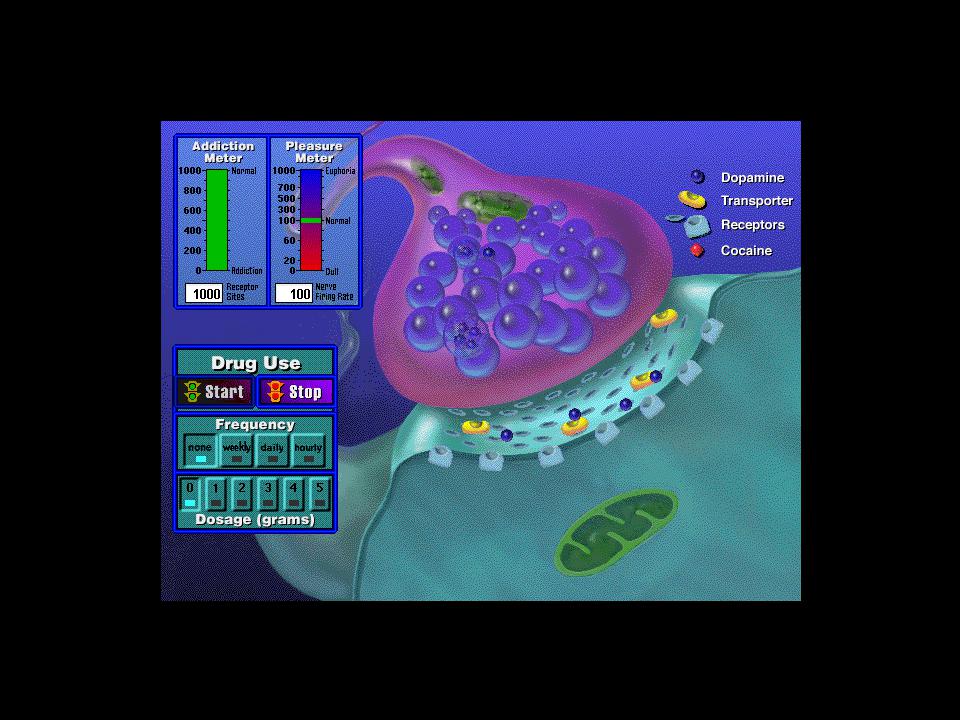
Depression
•Catecholamine Imbalance. The concept of a Reward Deficiency Syndrome provides a working model for studying the mechanism by which antidepressant drugs accomplish their therapeutic effect. Some antidepressants (e.g., monoamine oxidase inhibitors (MAOI and imipramine), are known to elevate brain levels of catecholamines. One side effect of L-Dopa (a precursor of dopamine used to treat akinesia in Parkinson's Disease) is that it sometimes leads to excessive emotional behavior; while drugs that lower brain catecholamine levels commonly produce depression as a side effect (e.g., reserpine and tetrabenazine, which treat hypertension). This suggests that one factor in depression could be a reduction in available catecholamines adversely affecting the activity of dopaminergic neurons in the reward system.
•Serotonin. Fluoxetine (e.g., Prozac®) is a successful antidepressant that is an SSRI and has no cholinergic, adrenergic, or histaminergic receptor blocking properties. The effect of SSRI compounds involves more than blocking re-uptake of the serotonin into the presynaptic vessicle. These drugs may alter the normal metabolic sequence of serotonin and alter concentration s of psychoactive metabolites of serotonin. Serotoninergic neurons are involved in the response to stress. It appears that dysregulation of the body's response to stress is an important component of many cases of depression.
•Hormones. The stress system of the brain is a complex of neuronal, hormonal, and immunological responses. It comes into play when a stress provokes the brain, causing its hypothalamic centers to release corticotropin-releasing hormone (CRH). In turn, CRH stimulates the pituitary gland and finally the adrenal glands that release cortisol. Cortisol constitutes the main circulating steroid associated with stress in humans. Many depressed patients show chronically elevated blood cortisol, implying a malfunction in the system that ordinarily controls cortisol. When excess cortisol reaches its receptor in the hippocampus and other limbic sites, CRH production is reduced; however, production of CRH is excessive in depressed patients, and the suppression fails.
•Brain injury per se engenders increased probability of depression. Part of this involves secondary response to the patient's recognition of future disability.
Shortcut to ovation

1. ADAPTATION AND HOMEOSTASIS
-morphology, physiology and behaviour of an animal are very well matched to survive in its environment = adaptation
acclimatization = physiological change within an individual animal resulting from new environmental conditions
-homeostasis = tendency of organisms to maintain relative internal stability
Claude Bernard (1813-1878) |
Walter B. Cannon (1871-1945) |
